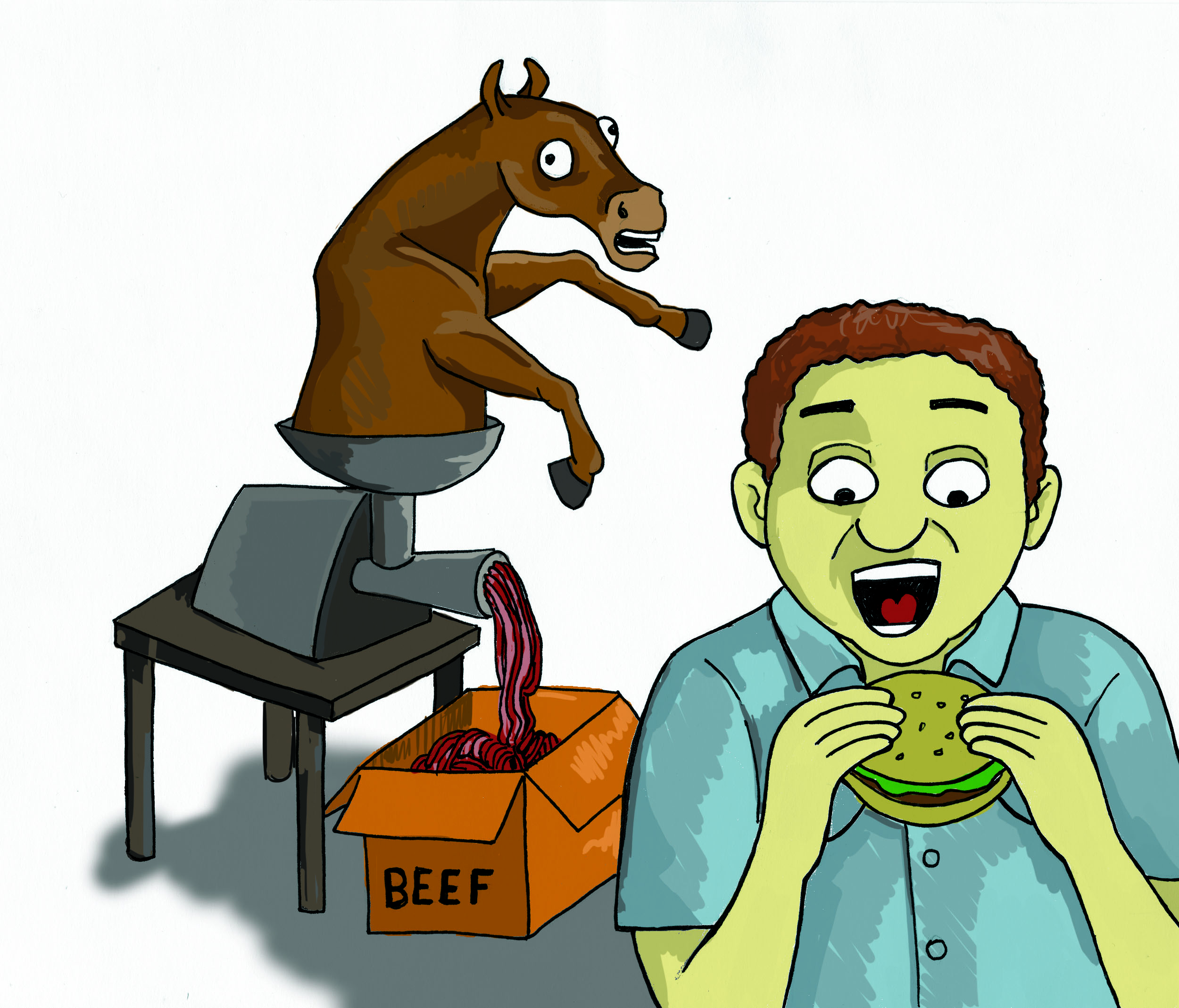Earlier this year a controversy surrounding the use of horse meat in beef products found across Europe dominated headlines. Although the story has since caused many companies in Europe to withdraw several products from the market, the scandal hasn’t incited any such reaction in North America.
The story first came to light on Jan. 15 when the Food Safety Authority of Ireland (FSAI) announced results of research they had conducted from November and December regarding the composition of different animal species in food products. Through DNA profiling, the FSAI were able to confirm the presence of equine, or horse, DNA within several frozen beef burgers that were being sold across various UK supermarket chains. With these preliminary findings, several more companies and stores began recalling beef meals that tested positive for equine DNA.
One of the products found to contain horse meat were Swedish meatballs available at European IKEA locations. After tests from the Czech Republic found traces of horse meat within the meatballs and Wiener sausage, the world’s number one furniture retailer pulled the meat goods produced by its main supplier in Sweden. A statement by IKEA noted that outlets across Canada and the United States were unaffected by this defect and the meatballs and sausages in North America are produced by another supplier.
Other major products that have been found to contain horse DNA include the ground beef produced for Taco Bell outlets in the United Kingdom, beef ravioli and tortellini by the European Nestle supplier, and beef burgers supplied by Tesco supermarket.
As of Mar. 1, the Food Standards Agency, an independent organization from Great Britain, has performed over 5,430 tests since Jan. 20 on several meat-based products from a range of retailers and shops throughout Europe. These tests have shown that only 0.3 per cent of samples contained traces of horse meat. However, included in the research by the agency is the infamous test showing a beef lasagne product by Findus containing between 60 to 100 per cent horse meat.
European consumers have become cautious. One statistic links the controversy to a 30 per cent increase in purchasing beef burgers and meatballs through independent butcher markets across the UK.
Health-wise, horse meat may only produce legitimate health concerns when traces of phenylbutazone, a commonly used medicine for horses for short-term treatment of fevers and pain relief from infections, are found within the horse. While phenylbutazone may have deleterious health effects in humans, common practice dictates that if a horse is given the medication it becomes illegal for the horse to be slaughtered for human consumption. The FSAI also tested the preliminary beef burgers in January for phenylbutazone and found no traces, stating that there was “no risk to consumer health associated with these findings.”
Is horse meat dangerous?
Ethology is the study of healthy animals exhibiting normal behaviour within their natural environment. There is much interplay between ethology, animal rights, and welfare. University of Manitoba ethologist James Shapiro stated in an interview with the Manitoban, “it appears to me that there is no ‘scandal’ that involves animal rights and welfare or human safety with respect to the consumption of horse meat.”
Much of the negative press may come from the fact that horse meat is considered taboo in many cultures. Countries like the UK, Ireland, the United States, and major parts of Canada do not consider horse meat part of a conventional diet. Conversely, the Jewish faith technically condones the consumption of horses because they do not have cloven hooves and are not ruminants. Several countries including France and Italy celebrate horse meat, or “viande de cheval,” as a delicacy.
With this in mind, Shapiro stated, “the companies involved are concerned about their public image and are engaged in damage control with their customers. That, however, is a marketing issue and not an animal rights issue.”
Consumption of the protein in horse meat is no better or worse than protein from cattle, according to Shanleigh Thomson, a food science lab technician from Purdue University. She stated that the difference comes in the standards for raising and slaughtering beef cattle and the absence of such regulations for horse meat in Canada or the U.S.
To date, there is no evidence that consumption of horse meat is inherently more dangerous to human health than beef.

